Vladimir Nabokov et la traduction, dir. Julie Loison-Charles et Stanislav Shvabrin, Artois Presses Université, 2021.
La présente publication est un recueil d’articles sur Vladimir Nabokov, auteur multilingue très célèbre mais dont le rôle en tant que traducteur et traductologue est trop peu connu (à l’exception de sa pratique de l’auto-traduction et de sa traduction littéraliste de Pouchkine). Ce volume a pour ambition de combler ce manque.
Les articles explorent les différentes facettes des rapports de Nabokov avec la traduction, notamment la représentation de la traduction dans ses romans, Nabokov traducteur, traductologue ou traduit, ou encore la traduction comme commentaire.
Différentes méthodologies sont convoquées (traduction, littérature comparée, anglistique, slavistique, linguistique) et les approches sont aussi bien théoriques que pratiques, que ce soit dans l’analyse de traductions publiées ou dans des traductions intersémiotiques (adaptation cinématographique ou théâtrale notamment).
Julie Loison-Charles et Stanislav Shvabrin
Sommaire
Introduction……………………………………………………………………………………
Partie 1 : Qu’est-ce que la traduction ?
Christine Raguet
antranou svadi – la traduction, comme encodage. Ou « The road not taken »
Susan Elizabeth Sweeney
Ineffability and Untranslatability in Nabokov
Isabelle Poulin
La ligne traductive de Vladimir Nabokov : une pensée de la trace
Partie 2 : Nabokov aux marges de la traduction
Paul B. Grant
Howlers, Humour, Hubris. Translation and Truth in Nabokov’s Onegin
Léopold Reigner
À propos du Flaubert de Marx : Nabokov et l’art de la correction
Partie 3 : Nabokov traducteur
Stanislav Shvabrin
Dialogic Encounters, Verbal Vestiges: Vladimir Nabokov, Translation—And Dialogue
Julian W. Connolly
Nabokov’s Translations of Lermontov’s Poetry: The “Demon” Tamed
Alexia Gassin
Colas Breugnon versus Nikolka Persik ou Nabokov et l’art de la subjectivité
Partie 4 : Traduire Nabokov, une affaire de famille
Julie Loison-Charles
Traduire les mots étrangers dans Ada : un cas d’étude sur le chapitre 38
Chiara Montini
« Mon livre » – Dmitri Nabokov, The Enchanter et L’incantatore
Lyudmila Razumova
Les traductions de Pale Fire vers le russe
Partie 5 : Traduire Lolita
Stanislas Gauthier
La traduction comme mode de lecture possible : un exemple pris dans Lolita traduit par Éric Kahane
Morgane Allain-Roussel
Des ajouts dans les traductions françaises de Lolita
Marta Arnal Gas
Les jeux linguistiques de Lolita en espagnol et catalan
Partie 6 : Traduction intersémiotique
Yannicke Chupin
Traduire Lolita pour la scène : entretien avec la metteuse en scène Émilie Moreau
Maria Emeliyanova
Intersemiotic Translation as a Fluid text: From Vladimir Nabokov’s Kamera Obskura to Tony Richardson’s Laughter in the Dark
Marie Bouchet
La traduction des objets du quotidien dans Ada : révéler les potentialités créatrices de la « banale réalité »
Partie 7 : La traduction dans les romans de Nabokov
Sophie Bernard-Léger
De Fiodor traducteur à Fiodor traduit, ou les différents plans de traduction dans The Gift
Corinne Scheiner
Brutal Betrayers and Their Evil Translations: The Willful Reshapings of Kinbote and Conmal
Sean DiLeonardi
Nabokov and the Mathematics of Language

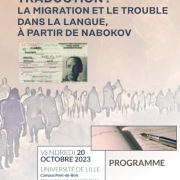
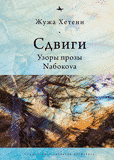
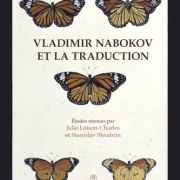
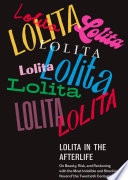
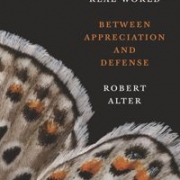

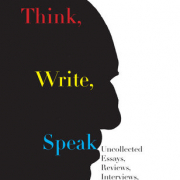

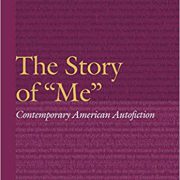
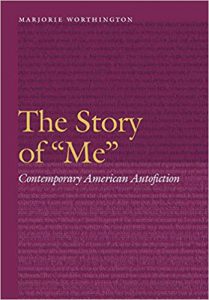 Autofiction, or works in which the eponymous author appears as a fictionalized character, represents a significant trend in postwar American literature, when it proliferated to become a kind of postmodern cliché. The Story of “Me”charts the history and development of this genre, analyzing its narratological effects and discussing its cultural implications. By tracing autofiction’s conceptual issues through case studies and an array of texts, Marjorie Worthington sheds light on a number of issues for postwar American writing: the maleness of the postmodern canon—and anxieties created by the supposed waning of male privilege—the relationship between celebrity and authorship, the influence of theory, the angst stemming from claims of the “death of the author,” and the rise of memoir culture.
Autofiction, or works in which the eponymous author appears as a fictionalized character, represents a significant trend in postwar American literature, when it proliferated to become a kind of postmodern cliché. The Story of “Me”charts the history and development of this genre, analyzing its narratological effects and discussing its cultural implications. By tracing autofiction’s conceptual issues through case studies and an array of texts, Marjorie Worthington sheds light on a number of issues for postwar American writing: the maleness of the postmodern canon—and anxieties created by the supposed waning of male privilege—the relationship between celebrity and authorship, the influence of theory, the angst stemming from claims of the “death of the author,” and the rise of memoir culture.